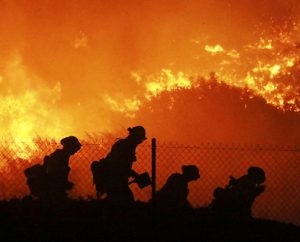Experts Reimagine Wildfire Preparedness at Luskin Summit Session

Over 500 participants joined the Luskin Summit 2021 webinar “Preparing for Even Wilder Wildfires” on Feb. 4 to learn about the impacts of wildfires on health, housing and infrastructure, particularly in low-income communities. The webinar was moderated by JR DeShazo, director of the UCLA Luskin Center for Innovation, and featured a panel of experts from government, nonprofits and academia. Calling 2020 a year of disastrous wildfires, Professor Michael Jerrett of the UCLA Fielding School of Public Health pointed to an indelible human fingerprint on forest mismanagement. He identified wildfires as an environmental justice issue due to the disproportionate impact on people of lower socioeconomic status. In addition to the destruction of housing and infrastructure, wildfires emit complicated mixtures of pollutants that can have negative health consequences on human populations, he said. DeShazo explained that even in an ideal wildfire management scenario, we will still face small wildfires, reinforcing the importance of developing policies to mitigate their impact on our health and environment. Gregory Pierce, associate director of the Center for Innovation, spoke about the housing affordability crisis that has led to a pattern of building homes in fire-prone areas. He suggested increasing the supply of affordable housing in areas that are not prone to wildfires, updating zoning and urban design standards, and implementing policies to increase the fire resistance of buildings. Justin Knighten, advisor to the California Governor’s Office of Emergency Services, highlighted the importance of infusing equity into the conversation and reimagining what it means to be prepared for wildfires while working with vulnerable communities. — Zoe Day


